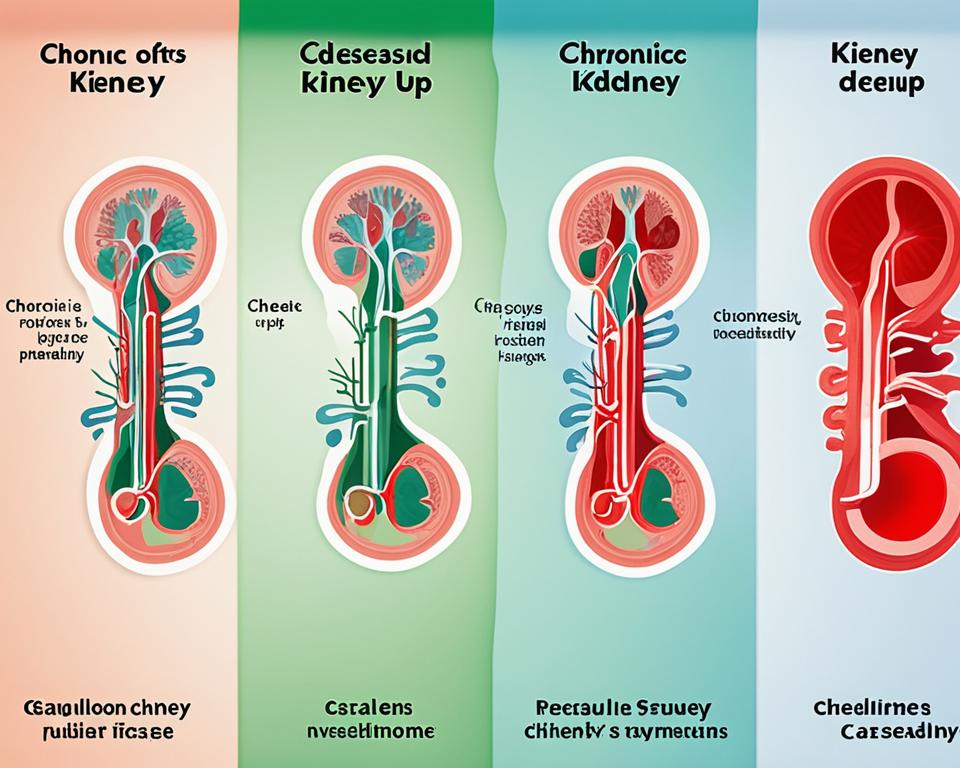Maintaining healthy kidney function is essential for overall well-being, as the kidneys play a critical role in filtering waste, regulating fluid balance, and supporting various bodily processes. This article will explore the importance of regular kidney function tests, the recommended frequency based on individual risk factors, and the various types of tests available to monitor renal health.
The health of our kidneys is a crucial factor in maintaining overall wellness. These vital organs are responsible for a multitude of crucial functions, including the filtration of waste, the regulation of fluid balance, and the production of essential hormones. Regularly checking kidney function is paramount to ensuring these essential processes continue to operate smoothly.
The frequency of kidney function tests can vary depending on an individual’s age, health status, and risk factors for kidney disease. Proactive monitoring and early intervention are key to preserving kidney health and preventing the development of chronic kidney disease, which can lead to serious complications if left untreated.
Read interesting things at : vetocellacvgummies
Key Takeaways
- Regular kidney function tests are essential for maintaining overall health and well-being.
- The recommended frequency of testing can vary based on individual risk factors, such as age, diabetes, and high blood pressure.
- Early detection of kidney problems is crucial for effective management and treatment.
- Routine check-ups and screening tests can help identify any underlying issues before significant damage occurs.
- Understanding the different types of kidney function tests and their interpretations is important for maintaining optimal renal health.
Understanding Kidney Function
The kidneys are essential organs that perform a variety of vital functions in the body. They play a crucial role in filtering waste and excess fluids from the blood, regulating blood pressure, producing hormones, and maintaining the balance of minerals and electrolytes. Understanding the importance of kidney function is crucial for maintaining overall health and well-being.
The Vital Role of Kidneys
The kidneys are responsible for a wide range of essential functions that contribute to the body’s overall homeostasis. They filter the blood, removing waste products, such as urea and creatinine, which are then excreted through urine. This filtration process helps maintain the appropriate levels of fluids, electrolytes, and minerals in the body. Additionally, the kidneys produce hormones that regulate blood pressure, stimulate red blood cell production, and support bone health.
Common Kidney Diseases
Unfortunately, the kidneys can be susceptible to various diseases and conditions that can compromise their function. Some of the most common kidney diseases include chronic kidney disease, acute kidney injury, polycystic kidney disease, and glomerulonephritis. These conditions can lead to serious complications, such as fluid and electrolyte imbalances, high blood pressure, and even end-stage renal disease if left untreated.
Importance of Regular Kidney Function Tests
Regular kidney function tests play a crucial role in the early detection and management of kidney problems. These tests can help identify any underlying issues or changes in kidney performance before significant damage occurs, allowing for timely intervention and treatment. Furthermore, for individuals with pre-existing conditions that affect kidney health, such as diabetes or high blood pressure, routine testing is essential for monitoring the progression of the disease and adjusting treatment as needed.
Early Detection of Kidney Problems
By regularly monitoring kidney function tests, healthcare providers can detect any potential issues with the kidneys in their early stages, when treatments are most effective. This proactive approach allows for the implementation of appropriate measures to prevent or slow the progression of kidney disease, ultimately improving patient outcomes and quality of life.
Monitoring Existing Conditions
For individuals living with chronic conditions that can impact kidney disease, such as diabetes or hypertension, regular kidney function tests are crucial for tracking the status of their renal health. These tests enable healthcare providers to closely monitor the patient’s condition, identify any changes, and make necessary adjustments to their treatment plan to ensure optimal kidney function and overall well-being.
“Regular kidney function tests are essential for the early detection and management of kidney problems.”
How Often Should Kidney Function be Checked?
The frequency of kidney function tests can vary depending on an individual’s age, health status, and risk factors for kidney disease. The American Kidney Fund recommends that healthy adults without any risk factors for kidney disease undergo a kidney function test, such as a GFR or creatinine test, at least once every year as part of their routine check-up. However, for individuals with risk factors, such as diabetes, high blood pressure, or a family history of kidney disease, more frequent testing may be necessary.
Recommendations for Healthy Adults
For healthy adults without any known risk factors for kidney disease, the American Kidney Fund advises getting a kidney function test at least annually as part of their regular check-up. This allows for the early detection of any potential issues and ensures the kidneys are functioning properly.
Risk Factors for Kidney Disease
Individuals with certain risk factors for kidney disease may need to undergo kidney function tests more frequently. These risk factors include diabetes, high blood pressure, a family history of kidney disease, and conditions that can damage the kidneys, such as glomerulonephritis or polycystic kidney disease. Regular monitoring of kidney function is crucial for these individuals to catch any signs of declining renal health early on and implement appropriate treatment strategies.
Types of Kidney Function Tests
Assessing the health of your kidneys involves various types of kidney function tests, each providing valuable insights into the performance and condition of these vital organs. Let’s explore the key types of tests that healthcare providers may utilize to monitor your renal health.
Glomerular Filtration Rate (GFR)
The glomerular filtration rate (GFR) is a crucial metric that measures the rate at which the kidneys filter waste from the blood. It is considered the best overall indicator of kidney function, as it reflects the kidneys’ ability to remove waste and excess fluids from the body. A decreased GFR can be an early sign of kidney disease.
Creatinine Levels
Creatinine is a waste product that is filtered out of the blood by the kidneys. By measuring the levels of creatinine in the blood, healthcare providers can gain insights into how well the kidneys are functioning. Higher than normal creatinine levels may indicate a decline in kidney function.
Urine Tests
In addition to blood tests, urine tests can also provide valuable information about kidney health. One common urine test is the albumin-to-creatinine ratio, which can detect the presence of protein in the urine – an early indicator of kidney damage. Urine tests can help identify underlying issues or monitor the progression of kidney disease.
Interpreting Kidney Test Results
Interpreting the results of kidney function tests is essential for understanding the overall health of the kidneys. Healthcare providers will typically evaluate the glomerular filtration rate (GFR), creatinine levels, and other relevant markers to determine if the kidneys are functioning normally or if there are any signs of kidney disease. It is important for patients to discuss the test results with their healthcare provider and understand what the numbers mean in the context of their individual health status.
The GFR is a key indicator of kidney function, as it reflects the rate at which the kidneys filter waste from the blood. A GFR below 60 mL/min/1.73m2 may be a sign of kidney dysfunction, while a GFR below 15 mL/min/1.73m2 typically indicates end-stage renal disease. Creatinine levels, on the other hand, provide information about the kidneys’ ability to filter waste. Elevated creatinine levels can be a sign of impaired kidney function.
In addition to GFR and creatinine, healthcare providers may also examine other kidney function test results, such as the albumin-to-creatinine ratio in the urine, which can detect the presence of protein and indicate potential kidney damage. By understanding the meaning of these test results, patients can work closely with their healthcare team to monitor their kidney health and implement appropriate treatment strategies if necessary.
Chronic Kidney Disease Stages
Chronic kidney disease (CKD) is a progressive condition that can be classified into five distinct stages based on the severity of kidney damage and the decline in glomerular filtration rate (GFR). Understanding these stages is crucial for monitoring the progression of the disease and implementing appropriate treatment strategies.
Stage 1: Mild Kidney Damage
In stage 1 chronic kidney disease, individuals experience mild kidney damage with a normal or high GFR, typically above 90 mL/min/1.73m2. At this stage, the kidneys are still able to function effectively, and patients may not exhibit any noticeable symptoms. However, the presence of kidney damage, such as protein in the urine, may be detected through laboratory tests.
Stage 2: Mild Decrease in GFR
Stage 2 chronic kidney disease is characterized by a mild decrease in GFR, with values ranging from 60 to 89 mL/min/1.73m2. While the kidneys are still functioning reasonably well, there is a slight decline in their ability to filter waste and maintain fluid balance. Patients may not experience any obvious symptoms at this stage, but regular monitoring is essential to detect any further deterioration in kidney function.
Stage 3: Moderate Decrease in GFR
Stage 3 chronic kidney disease involves a moderate decrease in GFR, with values ranging from 30 to 59 mL/min/1.73m2. At this stage, the kidneys are experiencing a more significant decline in their ability to perform their essential functions. Patients may start to experience symptoms such as fatigue, swelling, and changes in urine output. Proactive management, including lifestyle modifications and medications, is crucial to slow the progression of the disease.

Risk Factors for Kidney Disease
Several risk factors can increase an individual’s likelihood of developing kidney disease. Two of the leading causes of chronic kidney disease are diabetes and high blood pressure, as these conditions can damage the delicate blood vessels and filters within the kidneys over time. Additionally, a family history of kidney disease can also elevate the risk, as there may be a genetic component to certain types of renal conditions. Identifying and addressing these risk factors is crucial for maintaining kidney health.
Diabetes
Diabetes is a major risk factor for kidney disease, as high blood sugar levels can damage the small blood vessels and filters in the kidneys, leading to kidney damage and the development of chronic kidney disease. Properly managing diabetes through medication, diet, and lifestyle changes can help reduce the risk of kidney complications.
High Blood Pressure
Uncontrolled high blood pressure can also take a toll on the kidneys, as the increased pressure can cause damage to the small blood vessels and filters within the organs. Maintaining healthy blood pressure levels through medication, exercise, and dietary modifications can help mitigate the risk of kidney disease.
Family History
Individuals with a family history of kidney disease may have a genetic predisposition to certain renal conditions. This increased risk underscores the importance of regular check-ups and early intervention for those with a familial history of kidney problems. Proactive monitoring and appropriate treatment can help prevent or slow the progression of kidney disease in these individuals.
Lifestyle Changes to Support Kidney Health
Maintaining a healthy lifestyle can play a crucial role in preserving kidney function and reducing the risk of developing kidney disease. By implementing simple yet effective lifestyle changes, individuals can take proactive steps to support their kidney health.
Maintaining a Healthy Diet
A balanced, nutrient-rich diet that is low in sodium, phosphorus, and protein can help protect the kidneys and prevent further damage. Focusing on whole, unprocessed foods, such as fruits, vegetables, and lean proteins, can help maintain healthy kidney health. Additionally, limiting the intake of high-sodium and high-phosphorus foods, such as processed meats, canned goods, and certain dairy products, can alleviate the burden on the kidneys.
Exercising Regularly
Regular physical activity has been shown to improve kidney health by enhancing circulation, reducing inflammation, and lowering the risk of conditions that can lead to kidney disease, such as high blood pressure and diabetes. Engaging in a variety of cardiovascular exercises, strength training, and low-impact activities can help support overall exercise kidney health.
Quitting Smoking
Quitting smoking is essential for maintaining kidney health. Tobacco use is a significant risk factor for the development and progression of kidney disease, as it can damage the delicate blood vessels and filters within the kidneys. By quitting smoking, individuals can significantly reduce their risk of kidney-related complications and improve their overall health and well-being.
When to See a Nephrologist
In some cases, individuals may need to seek the care of a nephrologist, a specialized physician who focuses on the treatment of kidney-related conditions. Patients may be referred to a nephrologist if they have been diagnosed with chronic kidney disease, have a history of recurrent kidney stones, or are experiencing unexplained changes in kidney function. Regular check-ups with a nephrologist can help monitor the progression of kidney disease and ensure that appropriate treatment is provided.
A kidney specialist can play a crucial role in managing various kidney-related conditions and ensuring the optimal health of your kidneys. By working closely with a nephrologist, individuals can receive personalized care and guidance to address any concerns or issues related to their renal function.
| Reasons to See a Nephrologist | Benefits of Nephrologist Visits |
|---|---|
|
|
By proactively seeking the expertise of a nephrologist when necessary, individuals can take a more active role in managing their kidney health and ensuring the best possible outcomes. Regular check-ups and timely interventions can make all the difference in preventing or slowing the progression of kidney disease.

Kidney Disease Treatment Options
Depending on the stage and severity of kidney disease, various treatment options may be available. Medications can be used to manage underlying conditions, such as high blood pressure or diabetes, that contribute to kidney disease. In cases of end-stage renal disease, kidney dialysis or kidney transplant may be necessary to replace the kidney’s vital functions. The specific treatment plan will be tailored to the individual’s needs and the progression of their kidney disease.
Medications
For individuals with kidney disease, certain medications can be prescribed to help manage the underlying conditions that contribute to the deterioration of kidney function. This may include drugs to control blood pressure, regulate blood sugar levels in those with diabetes, or reduce the workload on the kidneys. Proper management of these kidney disease medications is crucial for slowing the progression of the disease and maintaining overall health.
Dialysis
When the kidneys can no longer effectively filter waste and excess fluids from the body, kidney dialysis may be necessary. This procedure involves using a machine to perform the filtration process, removing harmful substances and restoring the balance of minerals and fluids in the blood. There are two main types of dialysis: hemodialysis, which is typically performed in a healthcare facility, and peritoneal dialysis, which can be done at home. The choice of dialysis method will depend on the individual’s medical needs and lifestyle preferences.
Kidney Transplant
For individuals with end-stage renal disease, a kidney transplant may be the best option for restoring kidney function and improving overall health. This involves surgically replacing the damaged or failing kidney with a healthy one, either from a living or deceased donor. After a successful transplant, the new kidney can perform the vital filtration and regulatory functions that the original kidneys were unable to sustain. Careful monitoring and ongoing medication management are essential to prevent organ rejection and ensure the long-term success of the transplant.
Prevention and Early Intervention
Preventing the development of kidney disease or identifying it in its early stages is crucial for preserving kidney function and overall health. Regular check-ups with a healthcare provider, including routine kidney function tests, can help detect any issues when treatment is most effective.
Regular Check-ups
Regularly scheduled appointments with a healthcare professional are essential for kidney disease prevention and early intervention. These check-ups allow for the monitoring of kidney health through various tests, ensuring any potential problems are identified and addressed before they progress.
Managing Underlying Conditions
Maintaining control over any underlying conditions that can impact kidney health, such as diabetes or high blood pressure, is a critical aspect of kidney disease prevention. Through a combination of medication, lifestyle changes, and close monitoring, individuals can help reduce the risk of kidney disease and its associated complications.
Conclusion
In conclusion, regular kidney function testing is essential for maintaining overall health and well-being. The frequency of these tests can vary depending on an individual’s age, health status, and risk factors for kidney disease. By understanding the importance of kidney health, the various types of tests available, and the steps that can be taken to prevent and manage kidney disease, individuals can take proactive measures to ensure their kidneys continue to function at their best.
Regular check-ups and early intervention are crucial for preserving renal function and avoiding the serious complications associated with kidney disease. Monitoring one’s kidney function through tests such as the glomerular filtration rate (GFR) and creatinine levels can help identify any underlying issues before they become more severe, allowing for timely intervention and appropriate treatment.
Maintaining a healthy lifestyle, managing any underlying conditions that may impact kidney health, and seeking the guidance of a nephrologist when necessary are all important steps in safeguarding one’s kidney function. By prioritizing the health of these vital organs, individuals can ensure they continue to thrive and enjoy a better quality of life. The conclusion kidney health and the importance of kidney function testing are essential considerations for anyone looking to maintain their overall well-being.



